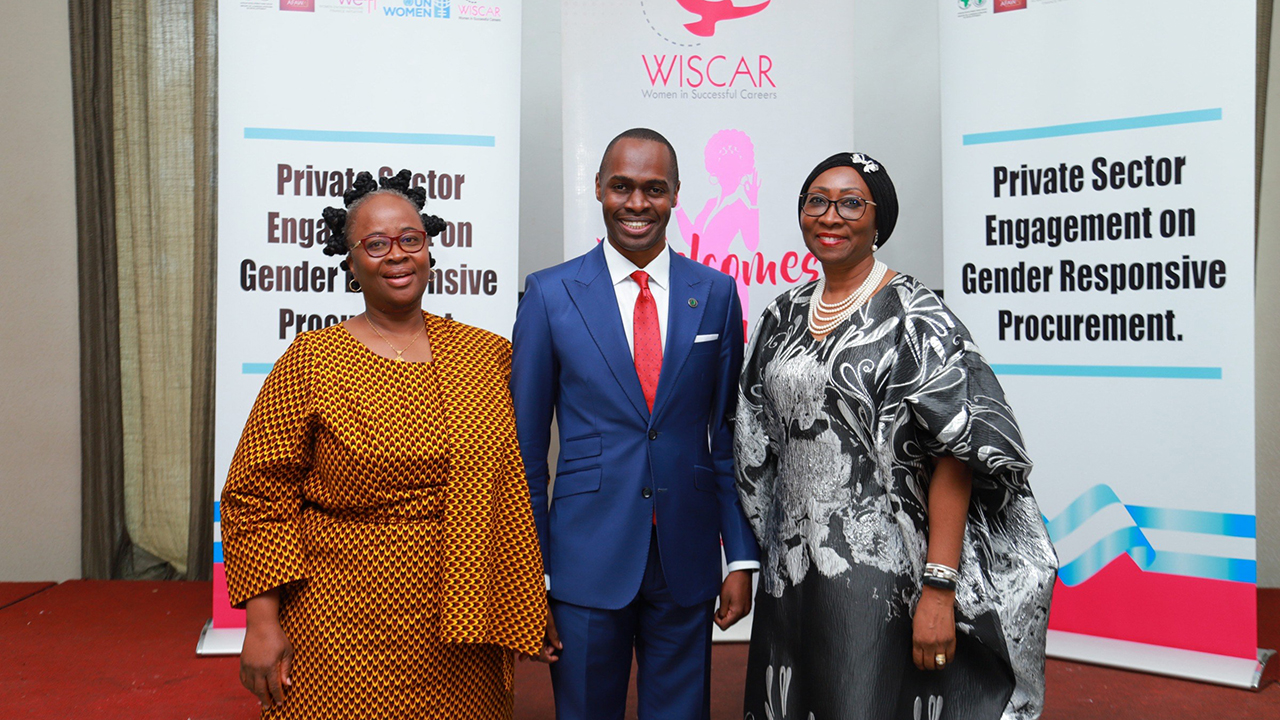
In a bid to promote policy reforms and enhance the capacity of women-owned businesses for public and private opportunities, women have been urged to incorporate diversity through advocacy, improving the rate of procurement of goods, services and funding for such enterprises.
[ad]
At a CEOs Breakfast Roundtable organised by Women in Successful Careers (WISCAR) in collaboration with the United Nations Women, the founder and Chairperson of WISCAR, Mrs. Amina Oyegbola, noted that promoting gender responsive procurement in Nigeria would have a positive ripple effect on society and the global community at large.
“Gender responsive procurement not only enhances the presence of women in the business sector, but also brings significant advantages for society and the private sector itself. Embracing gender responsive procurement principles allows businesses to manage their commitment to environmental, social and corporate governance values,” she said.
Oyegbola added that gender responsive procurement also empowers women and advances Sustainable Development Goals, including gender equality, reduced inequalities, responsible consumption, poverty elimination and the promotion of decent work.
United Nations Women Country Representative to Nigeria and ECOWAS, Mrs. Beatrice Eyong, revealed that despite the significant contributions of women to Nigeria’s economy, they were still being deprived of adequate funding opportunities for their enterprises.
[ad]
“Today, globally, we have about one per cent female entrepreneurs and women-led enterprises accessing public contracts. Women-led enterprises represent about 40 per cent of enterprises in Nigeria. However, they often face challenges in accessing procurement opportunities,” Eyong said.
She further noted that collaborating with key stakeholders to enforce gender responsive procurement of resources would be a huge step towards breaking down societal barriers and challenging stereotypes.
“When women have more money, it benefits a lot of people. Promoting gender responsive procurement is not merely a policy, but a powerful tool for advancing gender equality and women’s empowerment. It reflects a commitment to ensuring that our economies and societies benefit everyone irrespective of their gender,” she added.
For Bernard Chitunga of Gender Equality Trust Fund (GETF) and the Representative of the African Development Bank (AfDB), it was time to start taking action and implementing the right policy reforms regarding women empowerment.
“Women are not just the future of Nigeria; they are the present of Nigeria as well. Investing in Nigerian women is smart economics. African women are entrepreneurial,” Chitunga noted.
[ad]


